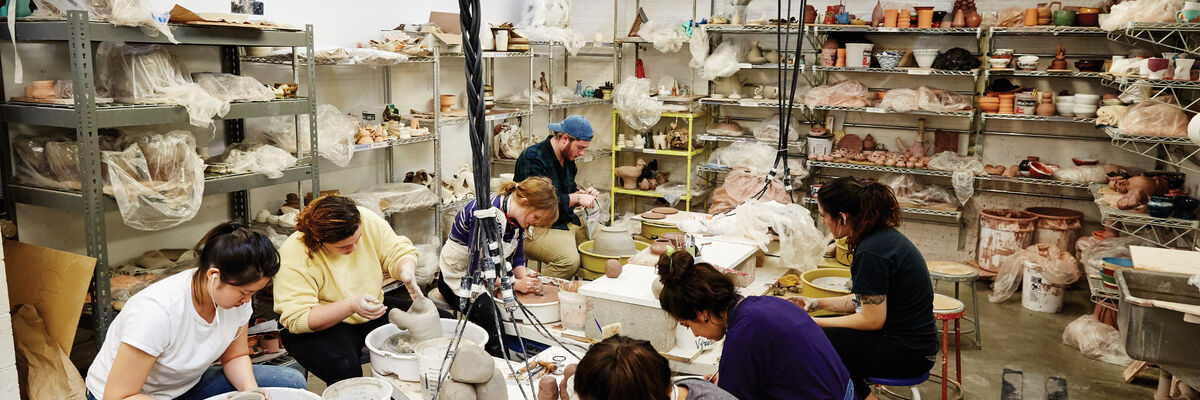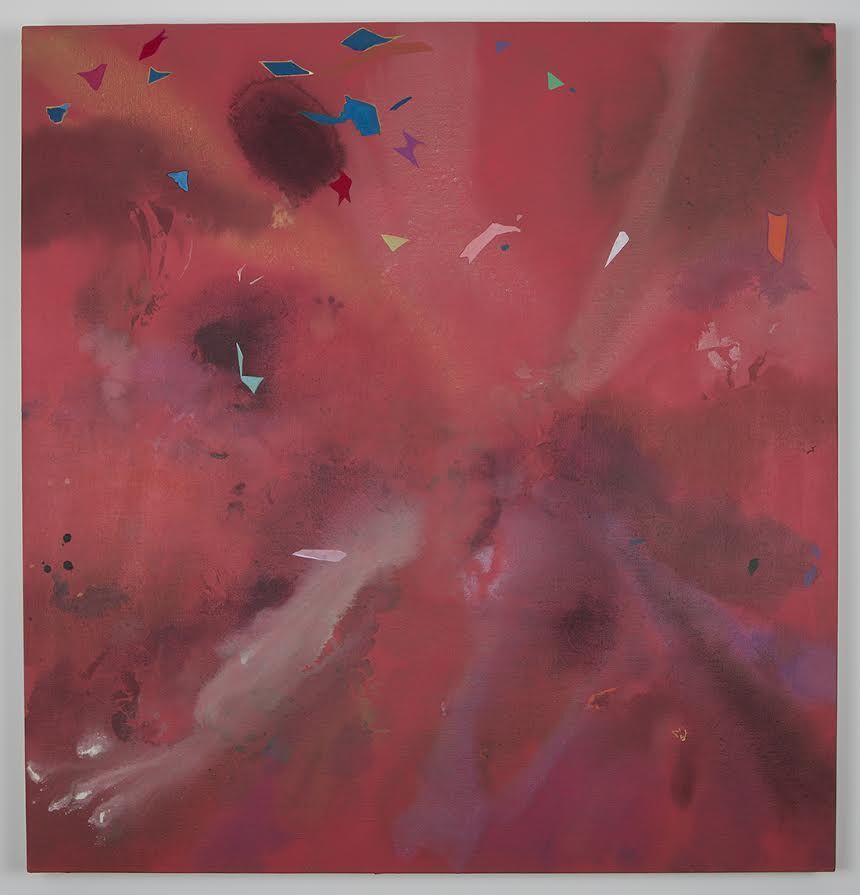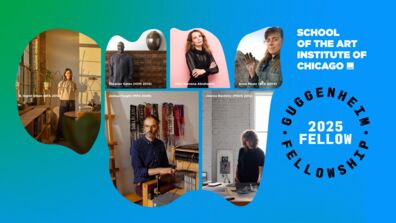
Creatively Coping with the Effects of War

by Ana Sekler (MA 2016)
Richard Casper (BFA 2012) has always been optimistic about life. Instead of allowing the trauma and injuries from his tour of duty as a Corporal in the Marines in the Iraq War to consume him, he turned them into something positive.
After sustaining injuries from four improvised explosive device (IED) explosions in Iraq, Casper returned home to Washburn, Illinois, in 2007. He did not initially intend to study the arts, but the left side of his brain had been damaged, forcing the right, or creative side, to take the lead. Casper began to feel comfortable expressing himself artistically and found that it helped alleviate the effects of post-traumatic stress disorder (PTSD). After studying art at Heartland Community College, Casper came to SAIC in 2010.
At SAIC, his work became more conceptual, and he found his preferred medium: ceramics. "Professors like William O'Brien (Ceramics) helped open up the way I thought about art, to find ways to better tell my story," says Casper. He describes his time at SAIC as life-changing. "By the time I graduated, my anxiety and depression were gone," he says. SAIC helped him discover the healing power of art, especially conceptual art, which "allows me to tell my story without directly telling it," says Casper.
Casper lost a close friend, Luke Yepsen, in Iraq and found that writing poems helped ease the hurt. In 2013, Casper was working at country music bar Joe's on Weed Street in Chicago and met songwriter Mark Irwin. Casper asked Irwin to help him write a song about Yepsen. Irwin agreed, and Casper was on his way to Nashville to write the song One Night in Iraq. Casper then took a friend who also suffered injuries from an IED explosion to Nashville to write his own song, and CreatiVets was born.
CreatiVets is a nonprofit organization that provides disabled veterans the opportunity to use art therapy, music, and creative writing to address combat-related trauma. "Writing a song was an instant release, it put my story on another level and allowed me to share," says Casper.
Sharing is often the most difficult part for veterans. Casper hopes that organizations like CreatiVets will help combat the 22 veteran suicides that happen each day. "The military teaches us not to be vulnerable, and they do it really well. So when we get home, we can't let that guard down. But art and music let you be vulnerable in a space where you're comfortable," says Casper.
Thus far, Casper has accompanied 15 veterans on the songwriting program in Nashville. The trip lasts for three days and is funded by CreatiVets. They go out to hear music in Nashville, and the next day, they begin writing a song with the help of a songwriter and musicians. "In a group session, someone is always left out, so that's why I prefer a one-on-one approach," says Casper.
Most of the veterans are hesitant about the program at first, but hearing their words in song is an exciting moment and provides immediate relief. One veteran said that a three-hour writing session did him more good than six years of therapy at the VA hospital. "There have been three veterans that have successfully written their own songs...and one who is learning to play guitar," says Casper.
All of the songs can be heard on the CreatiVets Youtube and Soundcloud pages. One song, They Call me Doc has more than 250,000 views and inspired the wife of a Marine suffering from PTSD without any treatment to write to Casper. Her husband wouldn't talk about his experiences. She heard They call me Doc on the radio and played it for her husband, which led him to finally open up, recounts Casper.
Casper is excited to return to the studio at SAIC this summer for a three-week therapeutic art program from May 25–June 12. He will be teaching ceramics to eight disabled veterans from across the country, while photography professors and ceramics professor William O'Brien will assist with critiques. The veterans will have full access to the studios and equipment at the school.
Casper, who currently lives in Virginia, will relocate to Nashville after the summer program at SAIC. "It'll cut the spending for the songwriting program as I'll be able to take one more veteran each time we have this trip, and Nashville has a really great arts community as well," says Casper. He is also working with other universities interested in implementing veterans arts programs.
Casper hopes to expand and offer a novel-writing and visual arts program as well. Ideally, he says he would like to open a facility available for veterans to visit anytime of the day or night and express themselves artistically. An optimist at heart, Casper believes that artistic expression can help all veterans think positively about negative experiences.
